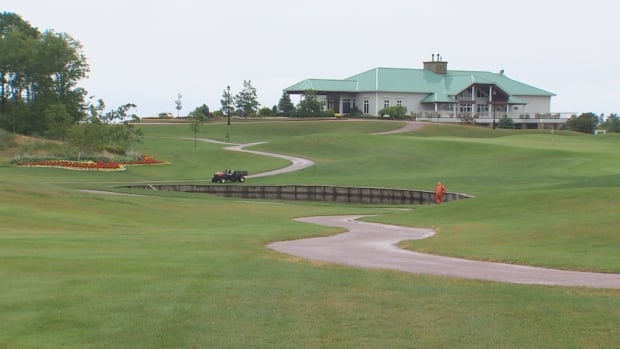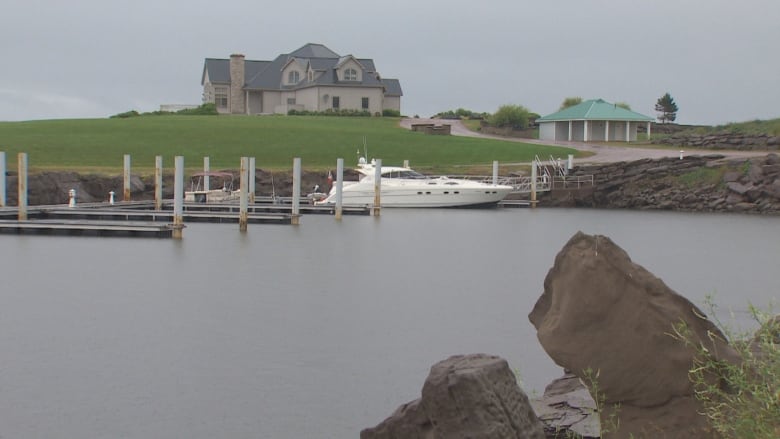
How do you value a property when there is no other quite like it?
That is at the heart of a dispute between the Fox Harb’r Resort on the Northumberland Strait and Nova Scotia tax assessors.
The owners say a $19.9-million assessment used for property tax purposes is far too high given the resort’s huge losses, which run into the millions every year.
“The assessment does not properly reflect the market value as of the prescribed date,” Fox Harb’r Development Ltd. said in its latest appeal, filed this week with the Nova Scotia Utility and Review Board.
The resort is not satisfied with a reduction in its 2020 assessment delivered by the Nova Scotia Assessment Appeal Tribunal last month.
The tribunal knocked the valuation down from $21 million to $19.9 million, but still well above the $5.7 million Fox Harb’r Development said it was worth.
Fox Harb’r a byword for luxury
The 401-hectare gated resort has become a byword for luxury in Nova Scotia since opening in 2000.
The gorgeous facility features a championship golf course, marina, private jet runway and hangar, a vineyard, stables and pheasant reserve.

Ron Joyce, the billionaire co-founder of the Tim Hortons coffee and fast-food chain, developed the resort near his home town of Tatamagouche.
Records in the tax dispute reveal that until his death in 2019, Joyce underwrote operation losses, which peaked at $8 million to $10 million annually.
Managers for his heirs pared losses down to $1.5 million to $2 million a year, according to evidence filed in the appeal.
To break even, they are building new homes and planning a 48-unit development.
A community asset, not an investment
Fox Harb’r says Joyce built the resort as a legacy and community asset and not as an investment.
Jeff Cuzner, a commercial property tax director with the real estate services firm CBRE, filed a report on behalf of the Fox Harb’r appeal arguing no potential purchaser would “ever consider reproducing the subject as is given its location and fiscal performance.”

“The location of the subject is inferior…. Fox Harb’r is located in a remote area with no population centre or amenities,” Cuzner wrote.
The owners argued that because the resort has never generated a profit and relies on annual owner subsidies to operate, “its value cannot possibly be estimated accurately by its income.”
They said a fairer estimate should be based on the sale value of eight other golf properties with accommodations in Nova Scotia and Prince Edward Island.
Fox Harb’r said the most comparable properties were Glen Arbour in Halifax, which was valued at $91,705 per hole, and Crowbush in Prince Edward Island at $158,000 per hole. Using that metric Fox Harb’r golf courses and its amenities are worth $125,000 per hole or $3.375 million. It valued the Founder’s Lodge at $1.6 million.
Fox Harb’r ‘unmatched’ in N.S.
The director of assessment for the Property Valuation Services Corporation (PVSC) dismissed the approach.
The Crown corporation, which sets property assessment in Nova Scotia, said no other golf property compares with Fox Harb’r.
“In addition to having accommodations unmatched by any other golf facility in the province, Fox Harb’r includes numerous amenities that none of the other properties can offer,” PVSC lawyer Robert Andrews said in the tribunal appeal.

It assessed the resort as one entity but used different methods — accommodations were assessed by income, while golf course costs were assessed by cost, lodge and real estate lots were assessed by direct comparison.
In its appeal to the utility and review board, Fox Harb’r said the “values placed on all components of the assessment are too high and inconsistent with both market value and the provisions of the Assessment Act.”
“The assessment was improperly weighted to an income-approach and did not consider a direct comparison valuation which would be a relevant basis on which to reach the proper value. The assessment relied upon the premise that the property was unique and allow this more weight than the actual market value basis on which it should have been based upon,” Fox Harb’r lawyer Michael L Ryan said in the appeal filed with the Nova Scotia Utility and Review Board, posted Nov. 1.
Important to Cumberland County
Property Valuation Services declined comment saying it will defend the assessment before regulators.
Fox Harb’r did not respond to a request for comment.
In a September 2022 Insight podcast interview with Huddle, a Maritime business publication, Fox Harb’r president Kevin Toth declined to discuss the amount of taxes paid to the local municipality saying “we are in a little bit of a dispute with them right now.”

He said the resort spends $7 million annually on goods and services in Nova Scotia and has invested over $125 million in developing the resort. It operates its own water and sewer system and maintains roads on the property.
Cumberland County Mayor Murray Scott said the resort draws people from around the world to the area “for various reasons, some own property, some come from services, others come for the golfing part of it.”
“Fox Harb’r is a big part of Cumberland County in terms of assessed value of that property, in terms of what it means for taxes for the municipality, no question,” he said. “It is very important to Cumberland County.”